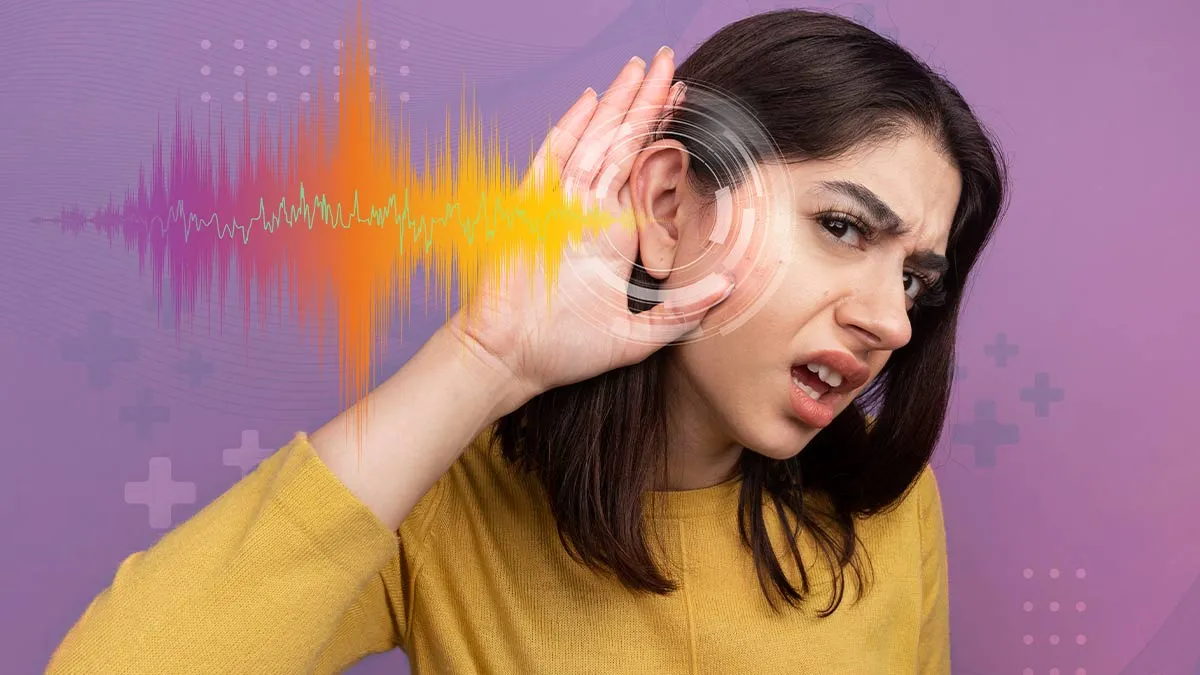
Have you ever been in a room full of people, but never felt connected, not because you don't want to communicate, but because you can't hear them? Over time, this disconnect can go beyond just missed conversations. It begins to influence the way your brain works, the way you feel about yourself, and the way you retain memories. Yes, social isolation and hearing loss can quietly take their toll on cognition and memory, and most people don't know about it until the effect is impossible to ignore.
Table of Content:-
CHECK YOUR
MENTAL HEALTH

We spoke to Priyanka Kapoor, Psychotherapist and Psychologist, Mumbai, who explained how hearing loss and social isolation can affect memory.
How Hearing Loss Impacts the Brain

Hearing is more than just a sense — it’s a way the brain stays stimulated. Each conversation, sound, or ambient noise stimulates areas of the brain. This ongoing stimulation keeps the brain sharp, active, and engaged. But when hearing falters, the stimulation to the brain slows down, and with that, the cognitive burden.
According to Kapoor, “Hearing loss leads to difficulty in understanding, comprehending, and relating to others. As a result, the person often withdraws from social conversations, and that lack of interaction and stimulation causes the brain to slow down.”
In simple terms, the brain is like a muscle — it grows stronger when exercised. But under reduced stimulation from hearing loss, areas of the brain that handle sound, language, and memory can begin to atrophy or shrink. This can result in:
- Slower comprehension
- Delayed processing of information
- Forgetfulness
- Difficulty recalling names, conversations, or events
In the long run, if untreated, this can lead to mental decline or even the risk of dementia, as established in various neurological studies.
Also Read: Zoom Fatigue, Brain Fog, Burnout – Are We Headed For A Cognitive Crash?
The Emotional Toll: Hearing Loss and Isolation
The consequences of hearing loss extend beyond memory. It affects self-confidence, mental health, and relationships. Difficulty in hearing may cause individuals to feel excluded in social gatherings or even in their own families. Gradually, they tend to withdraw instead of requesting others to repeat what they have said, resulting in social isolation.
Kapoor explained, “When people can’t relate to those around them or feel constantly left out, it leads to emotional distancing. And when the mind doesn’t get enough social stimulation, it starts to feel empty, which can eventually lead to depression, anxiety, and even memory issues.”
How Social Isolation Affects Memory

Feeling socially isolated isn't just lonely — it's a stressful process for the brain. Human contact is essential for emotional stability and cognitive function. Spending too much time alone, particularly when it is not by choice, results in:
- Depression and anxiety, both of which have problems with memory
- Absent-mindedness, as there is neither mental challenge nor stimulation
- Social anxiety, which renders future interactions more stressful and mentally exhausting
Even the simple act of making conversation, such as choosing words, understanding tone, and reading body language, is like a mini workout for the brain. Without these interactions, the brain becomes less practised in those skills, contributing to forgetfulness and reduced mental clarity. In the absence of these interactions, the brain becomes less skilled at those tasks, leading to forgetfulness and lesser mental clarity.
Also Read: Hearing Loss In Rural India: Expert Lists The Causes, Challenges, And The Way Forward
What Can Help?
The good news? These consequences are reversible. With proper interventions, memory and cognitive performance can recover, or at least stabilise.

1. Treat Hearing Loss
Hearing aids or cochlear implants, as necessary, can vastly enhance quality of life. The brain requires that stimulation, and the earlier it receives it, the better.
2. Relearn How to Connect
When hearing aids are not always possible, other forms of communication can be helpful, like lip reading, observation of body language, or assistive technology. These preserve the brain's active involvement in conversation.
3. Stay Socially Active
Participate in social activities, no matter how small. This may include phone calls, group meetups, hobby lessons, or even video chats with family. Anything that stimulates conversation keeps the mind active.
4. Look After Emotional Health
If sadness, anxiety, or loneliness remain, receiving mental health support should be the ideal choice. Meditation, counselling, or support groups can help calm emotional stress and improve mental clarity.
[Disclaimer: This article contains information provided by an expert and is for informational purposes only. Hence, we advise you to consult your professional if you are dealing with any health issue to avoid complications.]
Also watch this video
How we keep this article up to date:
We work with experts and keep a close eye on the latest in health and wellness. Whenever there is a new research or helpful information, we update our articles with accurate and useful advice.
Current Version